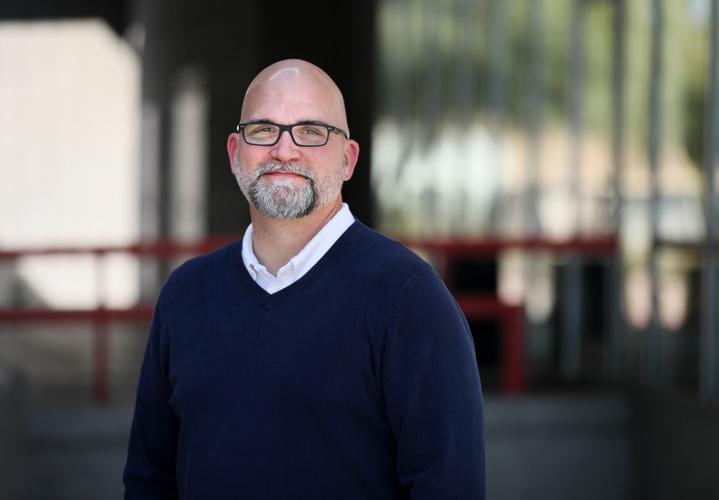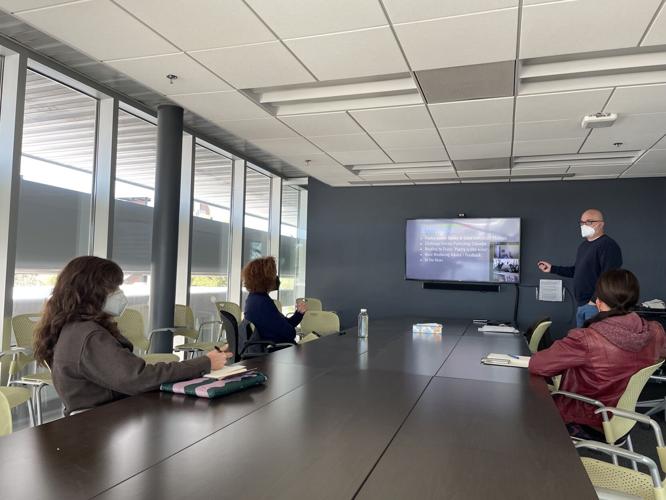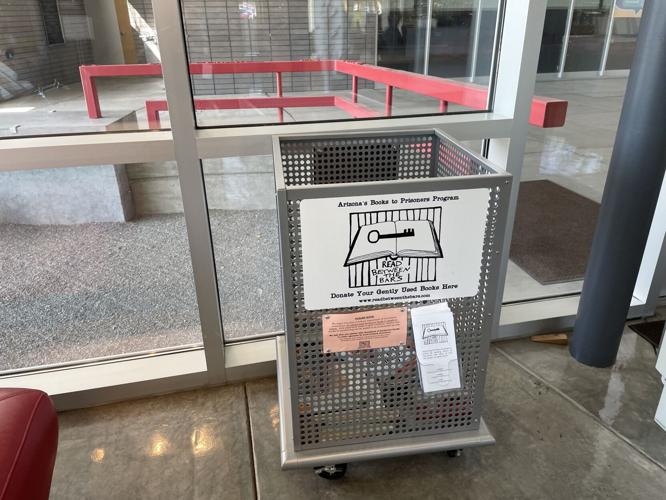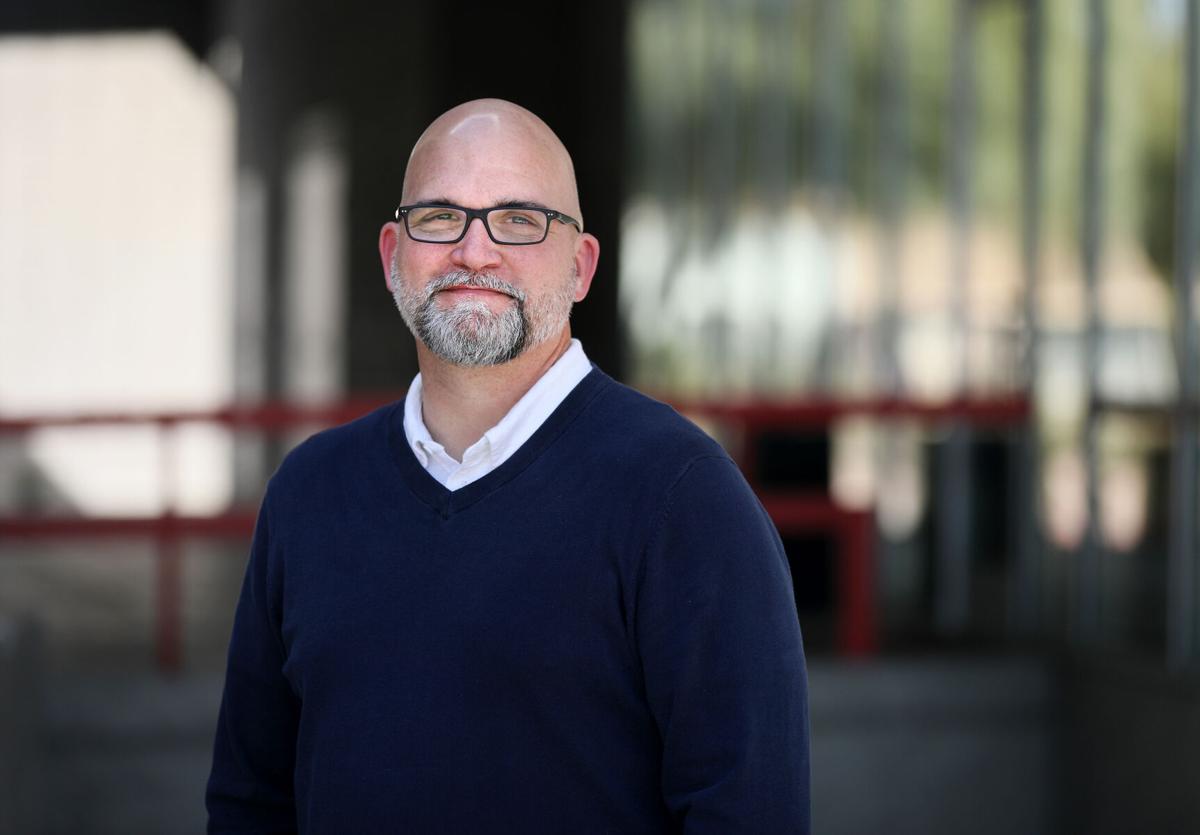A monthly workshop that pairs Southern Arizona writers with people in prisons across the country is building a community through the old-fashioned art of letter-writing.
The program was started four years ago by former journalist Joe Watson, who experienced firsthand the benefits writing can bring to incarcerated people.
Free Time: Building Community for Incarcerated Writers is run out of the University of Arizona Poetry Center, with volunteers meeting in person or via Zoom one Saturday a month.
Volunteers offer guidance, mentorship and collaboration through regular correspondence with incarcerated people. Watson provides advice to volunteers on how to best encourage and offer constructive and compassionate criticism to their mentees.
Studies over the years have shown that prison arts programs encourage and facilitate creativity, communication and reflection, while also teaching inmates how to work with a focused discipline, according to a 2014 evaluation published in the Center on Juvenile and Criminal Justice's Justice Policy Journal.
Prison arts programs have also been shown to act as a gateway to further learning by building confidence and self-esteem, especially in people who have been alienated from the formal education system, the article said. One reason might be the arts programs' nontraditional content and teaching methods, it added.
Feeling free
behind bars
The program's name is personal for Watson. While serving his own prison sentence years ago, the time he spent writing from his bunk was the only time he felt free, he said.
After his release, Watson went to work as communications coordinator for American Friends Service Committee Arizona (now called Just Communities Arizona), a group working toward ending the current punishment system and its emphasis on criminalization, surveillance and mass incarceration. In January 2021, he became communications director for Pima County Attorney Laura Conover but left the position last month to pursue other opportunities, including writing a book.
On the last Saturday in January, a half-dozen community members gathered in a sun-bathed conference room on the second floor of the University of Arizona Poetry Center, with another 18 people joining via Zoom.
Watson said later that he was pleased with the turnout in that second consecutive month of the program's hybrid-attendance model. He kicked off the meeting by inviting newcomers to introduce themselves.
Attendees ranged in ages and genders, and included a retiree who previously taught classes at Sing Sing Correctional Facility in New York, a law school student, a woman who also volunteers with Literacy Connects, and others.
Watson explained the process, telling attendees they would be matched with incarcerated people from prisons in Arizona, California, New York, Texas, Florida and other sites, through a list of more than 2,500 people maintained by a national nonprofit called PEN America. PEN America works to protect free expression by uniting writers and their allies to celebrate creative expression.
In October, Free Time participants organized and facilitated the UA Poetry Center's 2021 Poetry & Prose Writing Challenge for Incarcerated Writers for the second year in a row, which included a public reading of finalists' works and cash awards, thanks to PEN America and the Art for Justice Fund.
The contest culminated in a November reading of selected works by judges Piper Kerman, bestselling author of "Orange Is the New Black," and others. Now, Watson told volunteers, it was time to get back to the basics of what the workshop is about.
"Helping your friend inside get the most from you," he said.
Watson told volunteers that building trust in the relationship is key, due to the inherent differences they and their mentees will likely have, and to focus on who they are as people.
"Ask who they are. Are they a parent? Someone's brother, sister, son? What do they do for a living, what are their hopes and dreams?" Watson suggested.
The program is based on letter-writing because while tablets are free for many inmates to use, communication on those tablets is not, with people being charged every time they send or receive an email.
"And writing letters is an incredibly rewarding thing when you're incarcerated. Being able to share how your day is or what your experience has been," Watson said. "Lots of you will be writing to people who it says on paper will never get out of prison."

Joe Watson, standing at right, talks to volunteers during one of his workshop meetings. The group meets monthly to discuss mentoring strategies and developments in the criminal-justice reform movement.
Watson said 90-95% of people in prisons will get out at some point, but that many inmates taking part in the writing program are doing so because they know they have some time to do.
"If someone has a two- to three-year sentence, they maybe are not as interested in getting into the writing process and putting in the emotional labor gaining self-awareness and growth," he said.
Arts programs
help lift morale
Studies have shown prison arts programs to be effective in not just improving inmate morale and self-esteem, but also improving their disciplinary records.
The Center on Juvenile and Criminal Justice's 2014 evaluation surveyed 49 former participants in California's longstanding Arts-In-Corrections program, which ended its 30-year run in 2010 because of state budgetary issues. Nearly 13% of people enrolled in the program for a year or less reported fewer disciplinary issues, and the longer people remained in the program, the more their behavior changed. For people enrolled in the program for two to four years, 36% said they had fewer disciplinary records and after five years in the program, that number increased to 61%.
The overwhelming majority of former Arts-In-Corrrections participants also reported improved relationships with other inmates, staffers and family members, and said they liked themselves more after spending time in the program, the study showed.

To give volunteers an idea of what's going on in the lives of their mentees inside prison or what they'll face when they get out, Watson reviews developments in criminal-justice reform and prison-related news topics during each meeting.
Every meeting also includes a writing prompt. January's focused on how incarceration often reduces people to their inmate number, but that number can be a point of pride for some.
If a person has an inmate number that starts with a lower digit, they've likely been in for many years, Watson said.
Inmate identification numbers aren't the only significant numbers in an incarcerated person's life. For some people, the day they were admitted to prison for the first time might be significant, or it may be the day they're slated for release.
"But it can also bring up all the times they survived something," Watson said. "Fights, disrespect, getting a GED or college education. Reconciling with family members or losing contact with people they love while incarcerated."
He encouraged attendees to think about what their number would be if they were able to choose a number to represent their lives, and consider if that number demonstrates something he or she overcame.

A collection box sits inside the entrance of the University of Arizona Poetry Center, seeking donations of gently used books for use by Arizona Department of Corrections inmates. The Poetry Center is the home of several initiatives to connect people in prison with the arts.
One participant said he would refuse, calling it dehumanizing. Longtime participant Betty King said her number would be 17, as she grew up in the superstitious South and her lucky number was 17.
Another volunteer said her number would be the pandemic year that changed her life, with another saying she immediately thought of her age, saying she never thought she'd live that long.
Watson urged volunteers to use the number as a conversation piece in their letters to mentees, as new mentees often feel intimidated writing their first letter.
"I think we share more experiences, all of us as human beings, whether we're incarcerated or not than all of us care to admit," Watson said. "Don't be afraid to share your number."
Finding things
in common
While studies have shown prison arts programs to be beneficial to incarcerated individuals, they also have positive impacts on the people who work with them.
King got involved with the program a year and a half ago, coming from a background in public health. When the program went online during the pandemic, King decided to give it a shot, saying one of her values is service, "even if it's in small ways."
While she was a little intimidated at first, knowing that there were more experienced writers in the group, King said her lack of professional writing experience has never been an issue.
"I shy away from the word mentor. I really do try to think of them as my writing friends as opposed to incarcerated," King said. "When I write to someone who is a writer in prison, that is the terms on which we communicate."
King said she's been pleasantly surprised by the personal connections she's formed.
"I'm realizing that people who are in prison, as Joe likes to say, they're not that different from me," King said. "We find things in common beyond a love or poetry and writing. It's fun and meaningful."
"One person I was writing with, he had a son who got in trouble and was going to go to jail, and we talked about being parents and having kids and the struggle to raise our kids," she said. "It meant a lot to him because he was a parent and he was struggling with that."
King has also been surprised by how interested she is in the criminal-justice issues discussed during the workshop and how much she's wanted to get involved. In January, she planned a voting education session for the League of Women Voters in Tucson, about how to improve the state's criminal-justice system. She also joined the local branch of the NAACP, which actively works on bail reform.
She's also stepped up to help the program run more efficiently, overseeing the list of writers and keeping it updated, while matching new volunteers with their mentees. She has hopes the word will get out and more volunteers will sign up.
"I've found something I'm really interested in and passionate about," King said. "I'm committed."








